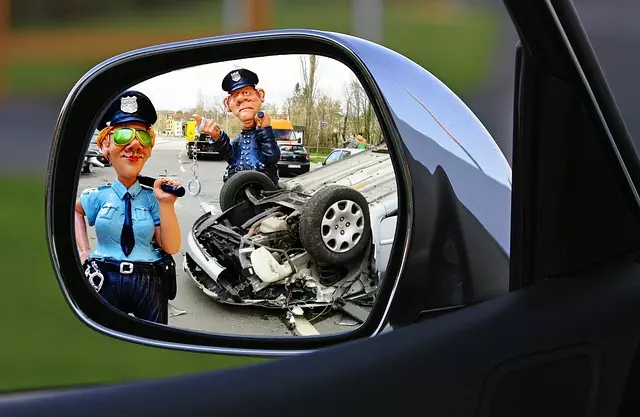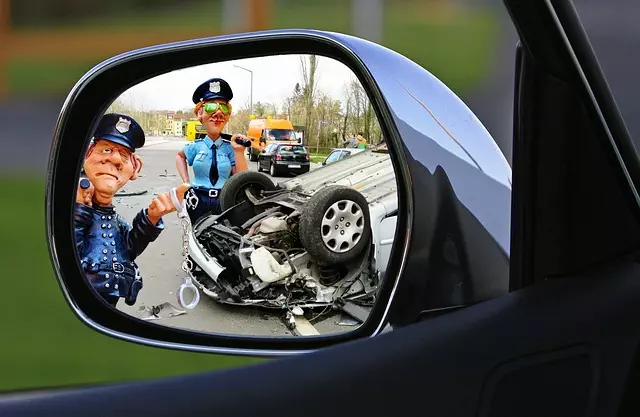Product Liability Cases Brooklyn have surged in prominence as ride-hailing services gain popularity, focusing on potential hazards such as driver background checks, vehicle safety standards, and emergency response protocols. These legal battles determine liability for accidents or injuries during rideshare trips, with plaintiffs suing either rideshare companies or drivers. The outcomes can set precedents for improving industry safety measures and shaping future legal frameworks, ultimately protecting riders. Brooklyn's legal landscape plays a crucial role in ensuring accountability, enhancing passenger safety, and addressing unique challenges in this evolving market. To mitigate risks, rideshare companies are implementing proactive measures like robust driver screening, advanced technology, regular software updates, effective vehicle maintenance programs, and comprehensive incident record-keeping.
“Rideshare services have revolutionized urban transportation, yet they’re not immune to safety concerns. This article delves into the critical domain of rideshare safety litigation, specifically exploring product liability cases in Brooklyn. We analyze common issues arising from these legal battles and their repercussions for both rideshare companies and passengers. Furthermore, we present strategies aimed at fortifying safety measures and minimizing legal risks, offering a comprehensive view of this evolving landscape.”
- Understanding Rideshare Safety Litigation: A Legal Perspective
- Product Liability Cases in Brooklyn: Uncovering Common Issues
- The Impact on Rideshare Companies and Passengers
- Strategies for Enhancing Safety and Mitigating Legal Risks
Understanding Rideshare Safety Litigation: A Legal Perspective

Rideshare safety litigation, particularly in the context of product liability cases Brooklyn, has become a critical area of legal focus as the popularity of ride-hailing services surges. These legal battles aim to address potential hazards associated with using rideshare apps, including driver background checks, vehicle safety standards, and emergency response protocols.
From a legal perspective, such cases often revolve around determining liability for accidents or injuries occurring during rideshare trips. Plaintiffs may argue that the rideshare company or drivers are negligent in adhering to safety regulations, while defendants counter with various defenses. The outcome of these Product Liability Cases Brooklyn can set precedents for enhancing safety measures across the industry, ultimately protecting riders and shaping future legal frameworks governing rideshare services.
Product Liability Cases in Brooklyn: Uncovering Common Issues

In Brooklyn, Product Liability Cases have shed light on several common issues within the rideshare industry. These cases often revolve around safety concerns and the liability of both ride-sharing companies and their drivers. One significant aspect is the responsibility for maintaining safe vehicles, including regular inspections and proper maintenance to prevent accidents caused by mechanical failures.
Additionally, the role of technology and software in ridesharing is under scrutiny. Software glitches or outdated navigation systems could lead to hazardous situations. Passengers may face risks due to driver distraction or poor vehicle monitoring by the ride-sharing platform. Brooklyn’s legal landscape offers a crucial platform for addressing these issues, ensuring accountability, and enhancing passenger safety in the ever-evolving rideshare market.
The Impact on Rideshare Companies and Passengers

In the dynamic landscape of modern transportation, rideshare companies have revolutionized urban mobility, offering convenience and accessibility to millions worldwide. However, this rapid growth has also brought complex challenges, particularly in the realm of safety. Product liability cases Brooklyn have emerged as a significant aspect, shaping the future of these services. When accidents occur, whether involving property damage or personal injuries, these legal actions can have profound implications for both rideshare companies and their passengers.
For rideshare giants, such incidents can lead to increased litigation costs, damaging public perception, and potential financial strain. Passengers, on the other hand, face the daunting task of navigating complex legal systems to seek justice and compensation. These cases not only impact individual lives but also influence regulatory frameworks, forcing companies to enhance safety measures and promote transparency. As a result, the rideshare industry is undergoing a metamorphosis, striving to balance convenience with unparalleled safety standards.
Strategies for Enhancing Safety and Mitigating Legal Risks

In the realm of rideshare safety litigation, enhancing security and mitigating legal risks are paramount. One effective strategy is implementing robust screening processes for drivers, including thorough background checks, to ensure only trustworthy individuals operate these vehicles. Additionally, integrating advanced technology like real-time tracking systems and automatic emergency response features can significantly improve passenger protection. Regular software updates and driver training on safety protocols further strengthen these measures.
Product liability cases in Brooklyn have underscored the need for companies to take proactive steps. This includes ensuring vehicle maintenance programs are in place to prevent mechanical failures. By fostering open communication between passengers, drivers, and dispatch systems, potential hazards can be swiftly addressed. Moreover, keeping comprehensive records of safety incidents and implementing data-driven solutions can help rideshare services anticipate and mitigate risks, thereby enhancing overall safety and reducing legal exposure.
Rideshare safety litigation, particularly in the context of product liability cases in Brooklyn, highlights a complex interplay between passenger safety and legal responsibilities. As these cases uncover common issues, it’s clear that enhancing safety measures and implementing robust risk mitigation strategies are paramount for rideshare companies. By focusing on fleet maintenance, driver screening, and improved response protocols, both businesses and passengers can navigate this evolving landscape, ensuring greater security on the roads while mitigating potential legal risks.
